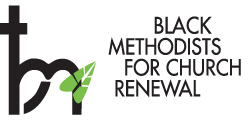
START A LOCAL CAUCUS
WHAT IS A LOCAL CAUCUS?
A local caucus is a subgroup of the national organization which related to and represents persons who reside within a certain geographical area such as jurisdiction, annual conference or local church. It is also an advocacy organization which addresses the needs and concerns of those it claims to represent.
HOW TO FORM A LOCAL CAUCUS
In past years, it has been noted that many black persons who wanted to form a caucus were not always aware of the procedures. In order to form a caucus today, however, one would have to determine the potential makeup of the groups to be represented. Several questions will arise as you begin to organize a local caucus: Will the group consist of adults, youth, or all ages? Will it represent your jurisdiction, annual conference, or local church? (If a local church, talk with your pastor about your plans and enlist his/her support.)
WHEN ORGANIZING A CAUCUS, KEEP THIS IN MIND:
The caucus should be brought together and organized around issues and concerns that affect the conference/community.
An official caucus consists of at least (20) paid members of the General BMCR. It is important that this procedure is executed in order to be recognized as a caucus.
In addition to the annual general membership fees, the local caucus should agree on a local membership fee. This would enable local caucuses to perform administrative functions, such as mailings, purchase of office supplies, etc. Each paid general membership will include the general newsletter.
There are many social problems that affect not only the local black church but also the black community. It has become very important that caucuses organize to deal with the social concerns. Indeed, it has also become necessary that caucuses not only discuss and plan strategies, but also offer resources that will benefit the black community.
Historically, the black church is the center of the black community, thus, the social problems that are present should be considered very carefully. For instance, some examples of social issues that affect the black community are drugs and alcohol abuse, unemployment, inadequate housing, black family and the plight of the historically black institutions of higher education. Many of these issues have been present in the community for a number of years but they have also become even more crucial as time has passed. For example, one problem that many of the historically black colleges and universities is facing if the gradual decline in enrollment and the threat of merging with white institutions. Likewise, another problem is their visibility such as their location in the community as well as the effect that the location has on these institutions. For instance, some of these institutions are located in the lower income communities where the environment is disturbing because of the presence of drugs, alcohol, and homicides. Another example of social problem facing the community today is the high cost of buying a house in any community.
Some resources that are available for research include publications such as Black Family magazine which contains articles that focus not only on the importance of the black family, but also on issues concerning historically black institutions.
Some agencies use resources for issues concerning social concerns such as drug and alcohol abuse and poor housing. One resource agency per drugs and alcohol abuse as well as for other social concerns is the General Board of Church and Society in Washington D.C. Another resource agency is the National Institute on Alcohol and Drug Abuse (NIADA) located in Rockville, Maryland. Information which relates to housing problems in the black community can be obtained through the local community affairs departments. Other publications with deal with crucial issues affecting the black community include Black Enterprise and Black Collegian magazines. Persons wishing to form caucuses are encouraged to define the issues affecting the black community and to seek resources that would eventually benefit the community.
Contact us.
Looking for more information. Fill out this form, and we’ll get back to you.

